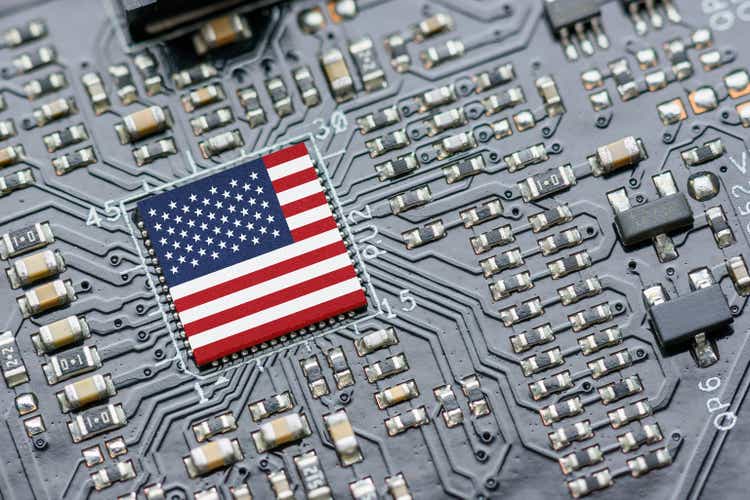
William_Potter
The CHIPS and Science Act might undergo a rebranding, but likely remains safe when President-elect Donald Trump returns to the White House in January, which is positive for firms such as Taiwan Semiconductor Manufacturing Company (NYSE:TSM), according to Needham.
“Our discussion with experts has led us to believe that the Trump administration, may not ‘repeal’ the CHIPS Act, but will largely rebrand the bill and maintain the original essence of it,” said Needham analysts Charles Shi and Ross Cole, in a Monday investor note. “After all, the CHIPS Act was initially drafted during Trump’s first term, and was one of the most bipartisan bills passed during the Biden administration. We expect policy continuity of the CHIPS Act, which will be a positive for Semicap.”
Twenty-two semiconductor companies have been named to receive funds through the CHIPS Act. A handful have been approved to receive billions in a combination of grants and loans, including GlobalFoundries (NASDAQ:GFS) $3B, Intel (NASDAQ:INTC) $19.5B, TSMC $11.6B, Samsung (OTCPK:SSNLF) $6.4B, Micron Technology (NASDAQ:MU) $13B and Texas Instruments (NASDAQ:TXN) $4.6B.
However, the CHIPS Act, which was created to bring semiconductor supply chains back to the U.S. while creating jobs and protecting national security, could be paused while the Trump administration reassesses the Act.
“We believe TSMC will see near-term volatility, but as the first non-U.S. semiconductor company that was pulled into the U.S. to set up fabs during Trump’s first term, we think TSMC will remain a key beneficiary of the rebranded CHIPS Act, and near-term volatility will represent buying opportunities,” Shi said.
However, the possibility of stricter export controls, especially towards China, could lead to market share loss there, especially Wafer Fab Equipment. China accounts for approximately 40% of the WFE market today, Needham noted.
“Excluding export controls, we are hearing that China WFE bookings for 2025 are now tracking at 80% of the 2024 level,” Shi said. “If there are no new export controls, China WFE could very well be flat YoY in 2025. However, we believe the industry will be forced to de-risk China during Trump’s second term.”
